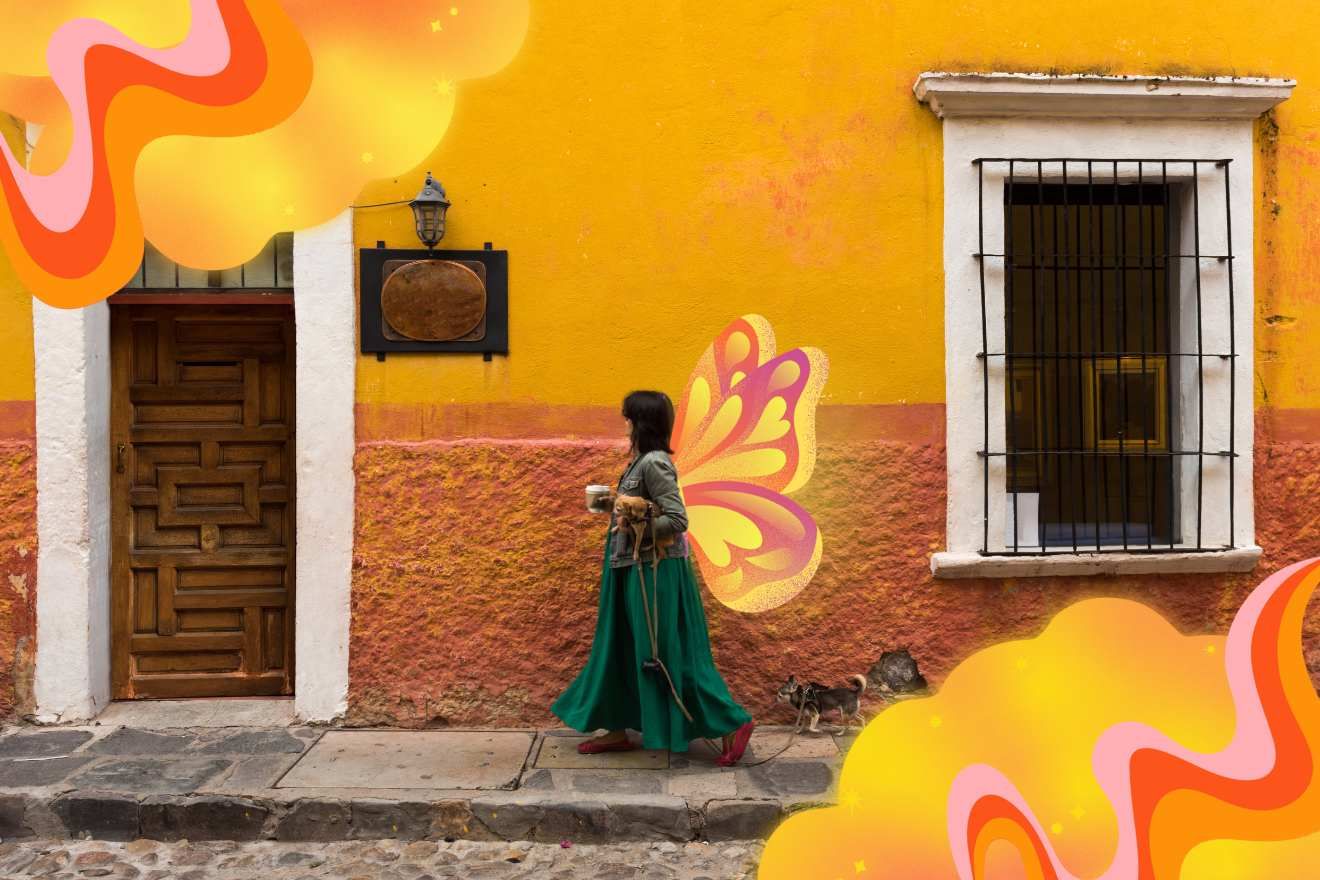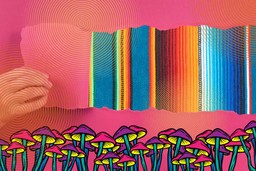Trauma—the silent epidemic that leaves scars on the soul—exists everywhere but often fails to abate through conventional treatment methods. As different cultures process their own traumas, psychedelics are now being used to strip away layers of history and violence. They are being used to reconnect and renew your cultural identity in a safe and supportive setting.
I liberated myself from the constraints of generational norms ingrained in my strict Latin heritage. I shed ideologies that I had held onto out of habit. Thanks to my background in patient care and nursing, I recognized something significant. When tracking my post-psychedelic use, the cultural assessment tool I had used with previous patients played a crucial role. It aided my own analysis.
This assessment considers the unique backgrounds, beliefs, and needs of each patient in normal physician visits. In this case, I identified my personal needs, distinct from expectations derived from my culture.
In my teenage years, I intentionally distanced myself from my family’s norms. However, as someone on the neurodivergent spectrum, separation from both my family and society left me feeling lonely and disconnected well into adulthood.
Unraveling afflicted layers accumulated over 35+ years became a humbling experience. Revisiting the layers of my upbringing through the powers of psychedelic therapy reshaped my understanding of culture, spirituality, and self, separate from society’s influences.
The Roots of My Cultural Identity
A Unique Latin Upbringing
In my Latin household, traditions and religion defined my worldview. Events like the World Cup and salsa nights were warm but confined to immediate family. Unlike peers with diverse social interactions, mine were limited to familiar faces—cousins, aunts, and uncles—at every gathering. This predictability comforted me, yet the more diverse society that always existed outside the front door called to me.
I can notice an insular comfort transformed into a quest for broader experiences. This might explain my move to Japan in my 20s. The confines of tradition overpowered exploring the unknown, and I am glad that I trekked on regardless.
At times, the stark difference in cultural identity and duality was so pronounced that I found it amusing, especially during college. My evolving personality presented a challenge for my father. With a demeanor reminiscent of Tony Soprano, he struggled to grasp the excitement I felt in sharing Matthew Barney’s Cremaster Cycle with him. This elicited a new, confused reaction from my father that still amuses me today.
Impact of Navigating a Dual Culture
Post-psychedelic use, I now perceive events as opportunities for rich connectivity and bonding, extending beyond the confines of routine interactions. Rather than limiting myself to familiar faces every day, I embrace the chance to encounter delightful surprises beyond the comforts of home. I truly never viewed my time out of the house that way. It used to be a burden; now it’s an adventure.
I’ve been noticing subtle yet significant differences in how women are perceived and treated in various respects. Although never explicitly stated, an underlying current of gender role expectations feels incongruent with progressive ideals encountered in my life. It’s as if I can observe these things more visibly within the Latin culture than ever before. It still appears strongly tied to a patriarchal dynamic.
Additionally, I notice that society often overlooks or doesn’t seem to find it pertinent to address these disparities. As someone with a concern for women in Latin cultures, I witnessed patterns during my nursing career. I used to brush it off as ‘that’s just how it is.’ But now, I question why. Why can’t we change it? I hold the hope and intention to contribute to that change.
Encountering Psilocybin as a Turning Point
The End of a Long Road
For over fifteen years, my quest for mental wellness was a carousel of various pharmaceuticals. Each new prescription brought a flicker of hope, but it was always short-lived. Side effects, especially on my gastrointestinal health, were a constant battle, causing more discomfort than relief.
Traditional psychiatric care added to my isolation and frustration. I felt counselors never truly understood my various issues. Approaching my late 30s, the weight of unfulfilled promises grew, coinciding with a midlife crisis.
During a period of introspection and disillusionment with conventional methods, psilocybin therapy appeared as if by magic or as an offering from the Universe to open my strict nurse eyes. Initially skeptical, I pondered whether it was another dead end or a real chance for change. Despite reservations and with little to lose from traditional treatments, I ventured into this new territory, hopeful yet cautious.
A New Dawn
Contrasting psilocybin therapy with years of pharmaceutical attempts was stark. Unlike the grueling period of adjustment with antidepressant medications, psilocybin offered mental clarity without a physical toll. In 2020, initial sessions were eye-opening, alleviating depression and providing profound introspective insights within weeks.
Continuing with additional doses over three years, psilocybin brought a remarkable transformation while fortifying my mental resilience. Each session revealed a stronger, centered resilience, dispelling mental fog and diminishing reliance on pharmaceuticals. This was a significant milestone in my journey towards mental wellness and independence.
Assessing the Change in Mental Health
The Awakening of Boundaries
The most profound realization was the concept of boundaries—foreign to my upbringing. Financial uncertainty blurred personal boundaries in my family. Desires like joining dance classes or slumber parties were dismissed amid my parents’ unresolved traumas and the pressures of adapting to a second country. This newfound understanding revealed these dynamics as responses to a chronic stressful environment, not just cultural identity and norms.
Reshaping Family Dynamics
The introduction of boundaries shook the very foundation of my family structure in these post-psychedelic therapy days. I began challenging and reminding my family of my autonomy—asserting my own perspective and resisting attempts to define my experiences.
Unfortunately, this assertiveness—rooted in understanding my needs and rights—has led to estrangement from much of my family. Yet, amidst this turmoil, there remains a beacon of hope: my relationship with my mother. Despite initial psilocybin apprehension and widened gaps in generational and cultural identity, she’s offered me shelter back home.
In our shared space, I witness her struggles—notably, the shrine to my late father—symbolizing her past role as a non-decision-maker. A poignant reminder of the constraints she faced, struggling to adapt to her identity in this stifling patriarchal environment.
This phase of my life is a delicate balance of understanding and assertiveness. Navigating my path of healing, I witness the lingering effects of a patriarchal culture on my mother.
It’s a situation laden with complexities, a mix of cultural identity, nuances, and toxic elements from our past. Through this lens, I continually learn to differentiate between cultural and unhealthy aspects, reshaping my personal life and research approach.
In Charge of My Time
Overcoming Codependency and Finding My Voice
Asserting my needs was equated with negativity—frowned upon in my family culture—creating a barrier hindering full expression. Hence, the joy of journaling. Self-imposed codependency shaped my actions, prioritizing others’ appeasement over fulfilling my own needs and hindering personal growth. Fueled by a growing interest in meditation, I realized the heart of my discomfort was a struggle for control. Or rather, a lack of it in certain aspects of my life.
Embracing a New Identity and Asserting Control
I’ve discovered my voice by embracing a progressive stance. Consistently setting boundaries ensures I stay in control of my time. For instance, when my mother interrupts my creative focus with the latest political affairs, I gently remind her that my emotions are reserved for my work. Shifting from prioritizing others’ needs or alarming opinions to safeguarding my space allows me to maintain a relaxed state. This, I believe, ensures homeostasis, fostering even more creative outputs. I’ve realized that I once absorbed my mother’s worries as my own, but now, I’ve liberated myself from that burden.
Integrating the Lessons Learned
A New Perspective in Nursing
Once a nurse deeply concerned about societal norms, I navigated a system that often felt like a matrix. Post-psychedelic therapy, societal constructs causing distress—like financial capitalization and profitable assets—no longer entangle my emotions. This allows me to be more present with anyone.
Many challenges my parents faced resulted from unaddressed childhood issues. Understanding that the lack of money in my upbringing influenced my view of it. While I used to fear finding successful finances, I now prioritize artistic outcomes that allow me to breathe every day.
Shifting my perspective, I now see beyond a patient’s immediate medical needs. I appreciate the interplay of their personal history, emotions, and societal pressures, which fosters a more empathetic and effective assessment.
Insights for Others: Embracing a Broader View
In the midst of psychedelic revelation, a thought sparked by a friend recently found its place. How and why do our consumption habits change post-trip? Prompted by this question lingering in the background, I analyzed the transformative impact of psychedelic experiences on our social habits.
Many of us may perceive ourselves to be caught up in our own ‘Truman Show’. Recognizing this, however, can bring a sense of individual identity. Assessing one’s changed personality is like navigating one’s distinct psychedelic journey but in waking life. In our awareness of existence, the celebration of each person’s unique contributions becomes harmonious in this post-psychedelic afterthought.
Discovering balance among aspects of self and acknowledging our true home extends beyond walls into the natural world, which fosters my connection and belonging. This balance is not just about personal well-being; it’s a crucial element in providing compassionate and effective care. This is especially true in healthcare settings.
Embracing the Earned Transformation
Owning my identity and embracing joy solidifies transformative changes, becoming integral aspects of my authentic self. Redefining my cultural identity and connection, I break free from patriarchal views of Latin culture, shaping a new narrative culture. Influenced by Latin roots and psilocybin therapy, this journey forms the bedrock of my proud and authentic self, hopefully inspiring others to discover their unique paths.
Psychedelic influence is a secret worth sharing—a revelation that empowers individuals to break free from trauma and its constraints. It can build a life filled with genuine happiness. Importantly, I advocate for legal avenues available through practitioners working within the bounds of the law or clinical trials.
In nursing, this journey becomes a compass for a holistic approach. Nursing assessment tools now guide self-reflection. Personal triumphs, such as the awakening of boundaries, reshaping family dynamics, and evolving towards assertiveness, are shared as lessons. Breaking free from other people’s tired habits and routine motives passed on from antiquated pasts, I’ve found my voice—transforming into a nurse who heals beyond the physical.







